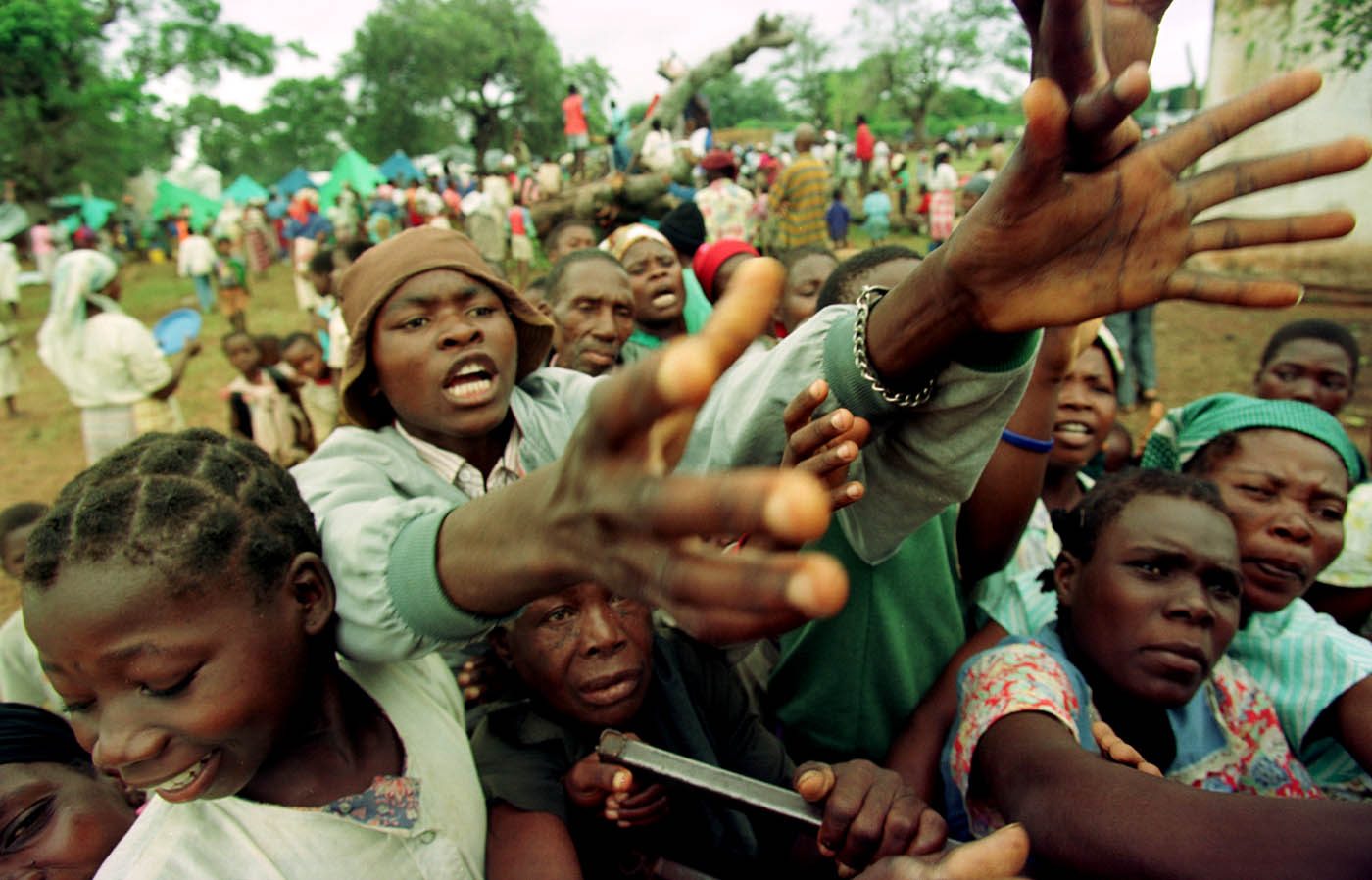
MACIA, Mozambique (BP)–When Rebecca Augusto surveys the Macia relief camp, she doesn’t see the makeshift tents made out of torn tarp or children crying because of hunger. Instead, she sees a miracle.
“Without God’s help, I would not have survived. Look at me! I am a cripple,” Augusto said, pointing to her shriveled legs. “When the water came with such power, I got up and ran. I don’t know how God did it, but I got up and ran to a tree. I am alive today because of him.”
From Augusto’s perch in that tree, she watched homes and churches destroyed. Since the flooding began in early February, nearly 1 million people have lost their homes in this impoverished African nation.
Tragedy struck when Cyclone Eline hit Mozambique and rains spread west into South Africa, Zimbabwe, Swaziland and Botswana. As the rains thundered into inland catchments, streams became rivers, rivers became torrents and dams overflowed, sending sheets of water east through Mozambique to the sea.
The Limpopo River, not long ago reduced to almost a trickle by drought, swelled to an estimated 16 kilometers (9.6 miles) wide. It washed away village after tiny village, as well as the regional capital of Xai-Xai.
Though the official death count is less than 500, aid workers fear it will climb well into the thousands as floodwaters recede. With food scarce and livestock rotting in the water, the tragedy only worsens.
Many Mozambicans escaped with only the clothes on their backs. When the waters finally recede, there will be nothing for them to go home to. “I don’t have anything but the ground where my house once stood,” Augusto said. “I have no food, no crops. I have nothing.”
As the reality of what happened sinks in, Southern Baptists hurry to help soften the blow.
A long-term relief project is scheduled to help people like Augusto. Southern Baptist missionary Dianne Randolph realizes that most of the aid currently circulating will meet only short-term needs. Whereas the people are hungry now, she said they still will be hungry next year if no one helps them replant their farms.
“All of their crops were washed away. This means that not only do they not have food, but they also don’t have seed to start all over,” Randolph said. “If they don’t replant now, the hunger could last up to 18 months or more.”
According to the World Food Program, an estimated 370,500 acres of staple food crops were wiped out while another third of the national cereal production suffered severe losses. That means hundreds of thousands of subsistence farmers must be fed until the next harvest in six months — if seeds arrive in time for planting season.
With planting season starting in April, missionaries and Baptist volunteers from the United States and South Africa put together an “agriculture bucket” to help farmers get back on their feet. The bucket contains seeds for planting everything from corn to okra. Farming tools also are included in the package, as well as New Testaments and tracts.
As part of the relief project, Randolph’s team will use parables from the Bible to teach farming techniques. “The main people we are focusing on with this project are the Ndau. They are unevangelized and have been resistant,” Randolph said. “But since the flooding began, we have seen many doors open.”
Those doors swung wide open for Domingos Pedro Rhice, who was stuck for five days with 27 other people on top of 5,000 cinder blocks. The pastor of Chokwe Baptist Church shared with them about Christ’s love the whole time they were stranded.
“People are wondering why they were chosen to survive. They watched the person sitting in the tree next to them lose their grip and vanish in the powerful water,” said Domingos, who also lost everything he owned, including his Bible. “Those who do not believe are recognizing that Jesus is Lord.
“The door is open now. We must get out and tell people about Jesus.”
Contributions toward the relief effort in Mozambique can be sent to: International Mission Board, Hunger and Relief Fund — Mozambique Flood Relief, P.O. Box 6767, Richmond, VA 23230.
Additional photos posted in the BP Photo Library.















